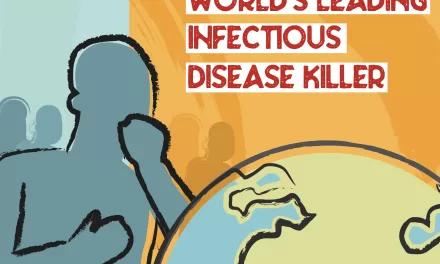In a landmark report, the National Task Force on Mental Health and Well-Being of Medical Students has underscored the importance of fostering a supportive environment in medical colleges across India. Recognizing that medical education forms the backbone of the healthcare system, the report delineates a series of actionable recommendations aimed at addressing the mental health challenges faced by medical students.
The Unique Challenges of Medical Education
Medical education, with its rigorous demands and high expectations, is a formidable journey requiring early commitment, perseverance, and substantial emotional and financial investments. Aspiring physicians often grapple with significant stressors, ranging from academic pressures to personal expectations, leading to a heightened risk of psychological distress. Global studies indicate that 30-40% of medical students report mental health issues, with anxiety, depression, and burnout being alarmingly prevalent.
In response to these concerns, the National Task Force was established to assess the mental health of medical students in India and to propose remedial measures. Their findings revealed a significant gap in research on the risk factors and interventions for mental health issues among this population, prompting a comprehensive approach to data collection and analysis.
Methodology and Key Findings
The Task Force employed a multi-faceted approach to gather data, including in-person visits to medical colleges, an extensive online survey with over 37,000 respondents, and consultations with key stakeholders such as the Federation of Resident Doctors Association India (FORDA) and the Association of Doctors and Medical Students (ADAMS). The report also integrated insights from crucial documents, including the Parliamentary Standing Committee’s Report on the Quality of Medical Education in India 2024, the National Suicide Prevention Strategy (2022), and National Medical Commission (NMC) regulations.
Recommendations for a Supportive Academic Environment
The Task Force’s recommendations emphasize the creation of a supportive and healthy academic environment that prioritizes the mental well-being of students. Key proposals include:
- Orientation Programs: Comprehensive orientation programs for new undergraduate and postgraduate students, highlighting the importance of mental health and familiarizing them with available support systems.
- Involving Families: Engaging family members during induction and periodically to enhance their understanding of the challenges faced by medical students, enabling them to provide effective support.
- Anti-Ragging Measures: Strict implementation of NMC regulations on ragging, with active anti-ragging cells and severe penalties for offenders.
- Mental Health Education: Integration of mental health education into the medical curriculum, with regular training sessions for students, faculty, and administrators.
- Counseling Services: Establishment of 24/7 counseling services, such as the TeleMANAS initiative, with medical colleges required to appoint counselors who report directly to the Dean.
- Work Environment Improvements: Enhancing infrastructure and amenities, including well-maintained hostels, clean facilities, and recreational spaces, to ensure the physical and mental well-being of students.
- Regulation of Duty Hours: Recommendations to limit residents’ work hours to no more than 74 hours per week, with mandatory breaks and reasonable duty hours to prevent burnout.
- Mentor-Mentee Programs: Strengthening mentor-mentee relationships to provide guidance and support, promoting resilience and professional development.
Addressing High-Risk Groups and Crisis Intervention
The report also highlights the need for targeted interventions for students at high risk of mental health issues. These include:
- Peer Support Systems: Leveraging senior students to support juniors, enhancing mental health awareness, and providing academic and emotional support.
- Deaddiction Services: Ensuring the availability of confidential de-addiction services on campus to address substance use issues early on.
- Support for Students with Mental Illness: Establishing Departments of Psychiatry within medical colleges to provide crisis intervention, involve families during emergencies, and offer necessary academic accommodations.
Conclusion: A Call to Action
The Task Force’s report represents a critical step towards improving the mental health and well-being of medical students in India. By implementing these recommendations, medical colleges can create a nurturing environment that not only educates but also supports the next generation of healthcare professionals. The focus on mental health is not just an academic obligation but a moral imperative, ensuring that those who care for the nation’s health are themselves healthy, resilient, and well-supported.












